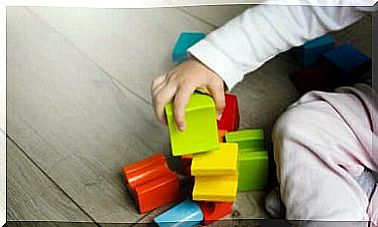How Does The Order Of Birth Influence The Personality Of Siblings?

Imagine for a moment that you are traveling with your siblings, and that you are all adults already. Which of the following do you identify with the most ?:
– The trip, you planned it for weeks, with all that that implies: hotel reservation, car rental, restaurants… You took your brothers and sisters into account at every moment and you looked for time and space to emotionally disconnect.
– You’ve been rushing all day to organize things in a hurry, adjusting the final preparations and leaving your house ready for the days you are going to be away.
– It seems super fun to take the trip you have all planned! You haven’t organized anything, you just want to enjoy the experience, laugh and have fun with your siblings. You benefit from the fact that your big brother organized everything and you didn’t even have to move a finger.
Are you familiar with situation # 1? You are certainly the oldest of the siblings.
If the second situation matches your personality, you are probably the middle child.
If you feel identified by the latter situation, you are surely the baby of the family.
Why does birth order matter?
Many researchers say that the order in which one is born into a family nucleus is as important as gender and genetics.
This leads us to ask ourselves the eternal question between “education vs. the nature of people”.
In the same family there are not two children who have the same parents. Why? Parents are different with each of their children, and never take the same role.
For example, if you are the child taking care of siblings, then your brother will take on another role, possibly that of the winner.
The three types of personalities between siblings
The older son is programmed for excellence and achievement, the middle child is educated to be understanding and accommodating, and the infant seeks attention.
The result makes the order in which siblings are born a powerful variable in personality development.
The 3 types of personalities are as follows:
– The biggest: the winner. The eldest son often has more in common with other children who are also the eldest in the family, than with his brothers and sisters.
Due to their status as the first child, the oldest child receives more control from their parents, and receives a lot of attention to be the first to come.
These people are often very responsible and they know how to behave. They are careful with themselves and with their personal relationships, thus reflecting a version of their own parents.
If you are the oldest child, you probably enjoy seeking the approval of others and achieving great things simply because you are predisposed to it.
Seniors are often distinguished by education and leadership professions. Being the older brother, you try to control your siblings.
When baby number two arrives, the older one will experience a sense of loss. Losing the unique focus can hurt. But everything that has been learned previously will allow him to change quickly and forcefully.
– The one in the middle: the pacifist. Younger children are generally understanding, cooperative characters, and adapt easily, although at times they may reflect competitive characteristics.
They care deeply about equality and they work within the family in a fair and equitable manner towards each member.
They often take advantage of a circle of close friends who represent an additional part of their family.
Cadets are the ones who receive the least attention from their families, and as a result, their comrades with laughter and the experiences they have chosen make up for them in this aspect.
They often take longer to mature, but they end up successfully pursuing professional careers of power, which allow them to use their negotiating skills.
The older brother and the younger will never be good for the same thing. The personality trait that defines the middle child is often the opposite of that of the eldest or youngest.
The incredible social skills that younger children have learned from negotiating within the family structure can prepare them to be great, successful entrepreneurs.
– The smallest: the soul of the party. If you are the youngest in the family, your parents have already gained enough confidence in their roles as progenitors, which makes them more lenient.
Therefore, they don’t pay as much attention to your every move as they did with your older brothers.
This situation leads the little ones to learn to receive attention from those around them through their sympathy and charm.
They have more freedom than their brothers and sisters, and are therefore more independent. They quickly find their position and they feel identified by their place where they feel safe.
They often choose careers as actors, comedians, directors, writers, etc.
They can also be good doctors or teachers. Their parents’ flexibility allows them exquisite freedom to promote their personal creativity.
They have less responsibility and, therefore, they seek experiences with great responsibilities.
What if you don’t have siblings?
– The only son. Unique children grow up surrounded by adults, and they are thus more verbal and mature.
This condition allows them to acquire great intelligence and easily overcome any other difference related to the order of birth.
Spending so much time alone leads them to be more resourceful, creative and to believe in their independence. They often have a lot in common with their parents, and generally follow them in their respective professional careers.
We invite you to observe the behavior of our brothers and sisters, in order to see if you perceive the characteristics of each position of the order of birth.
It will definitely make you smile!
And you, are you the oldest, the youngest or the youngest?









